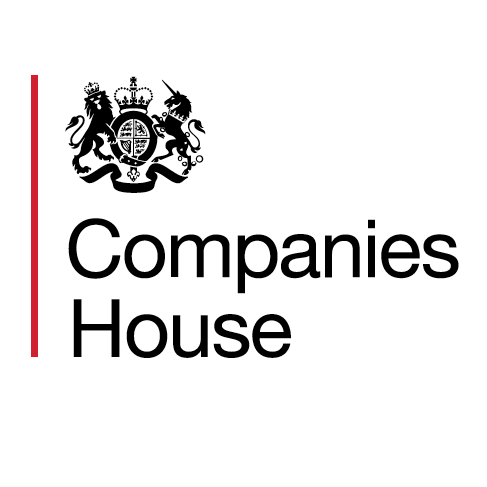Episodes

Thursday Aug 20, 2020
Reforming the Companies House register
Thursday Aug 20, 2020
Thursday Aug 20, 2020
New proposals will bring about the biggest changes for Companies House and the work we do since we began registering companies in 1844.
We spoke to Alexandra Walters, Head of Policy at Companies House. Alex told us how the proposals aim to help combat economic crime and improve protection for people who run businesses.
Gary Townley: Right. Thank you for downloading this Companies House podcast. My name is Gary Townley. I'm part of the External Communications team here at Companies House.
For those of you who don't know who we are, Companies House is an executive agency. We are sponsored by the Department for Business, Energy and Industrial Strategy, better known as BEIS. Our role really is to drive confidence in the UK economy, and we do that by incorporating and dissolving limited companies. We register company information. We take that information from all the companies on our register and we make that that information available to the public. We've got 4 locations, all around the UK. So we've got one in Edinburgh, one in Belfast, one in London and our main office really is here in Cardiff, where we're recording this podcast this morning.
Now, I'm delighted to be joined by Alexandra Waters today who’s Head of Policy here at Companies House. Welcome Alex.
Alexandra Walters: Thank you.
GT: So over the next 10 minutes, this is sort of rather, a sort of specialist type of podcast really. It’s not like our general ones we do because this one will be talking about the government's consultation on corporate transparency and register reform. They’re new proposals, and they're going to bring in really the biggest changes that have happened at Companies House since we opened our doors back in 1844. So we’ll get the ball rolling. Good morning Alex. What’s the consultation about and why are we doing it?
AW: Okay, so we've been working really closely with BEIS to publish a very wide-ranging, quite high-level public consultation about reforming the company's register. As you referred to before, the biggest potential change, if these proposals are taken forward, since 1844. What we're looking to do, is make changes to give Companies House new powers to combat economic crime and improve protection for people running businesses, whilst at the same time trying to continue to minimise administrative burdens.
It’s a high-level consultation. So rather than proposing how we might do some of this stuff at the moment, we're sort of asking, should we be doing some of these things? So it’s high-level. It's all new. And at the same time, we'll be going through an organisational transformation, looking to transform the way we work to make sure we're fit for the future in our new role.
GT: Right okay. So the consultation has been out now for a few weeks and there are 4 main areas I believe. Do you want to just talk about the areas?
AW: Yeah, sure. I mean there are a lot of proposals in the consultation, but as you say, they generally group into these sorts of themes. The first one which I think is probably one of the most interesting to the general public and some of our key stakeholders, is around knowing better who's setting up, managing and controlling companies.
So what we're proposing is that we start doing some identity verification, which is something we've never done before. What we're suggesting is that we verify identities of directors, people with significant control and those individuals filing information on behalf of a company. We’re asking whether people think we should verify identities of shareholders too.
At the same time as that, we're looking to consider whether we should collect more information on shareholders. The information we collect at the moment on shareholders is quite limited and it's quite difficult to link information and track information around the register. So looking to strengthen some of that at the same time to give us a better picture of company ownership and management and control.
GT: Yeah so quite a big change there. Strand 2?
AW: Okay, so the second theme is around improving the accuracy and usability of data. So this is where the real changes to some of the registrar's powers start to come in. Looking to get better quality information on the register, more reliable information. So these proposals include extending the powers of Companies House, so that we can query information before it goes on to the register.
GT: Okay.
AW: So at the moment, the law by which we’re governed, largely is about us being a registry. So we take in what's given to us by companies. These proposals will allow us to question something, if there's potential suspicious activity or we're concerned about something in some way. Having those powers to do something up front. We don't have those powers at the moment.
Similarly and on the other side of the coin, we want it to be easier to remove inaccurate information, still within certain boundaries, but there are gaps at the moment in terms of what we can and can't remove and in what circumstances. So we want to start to plug some of those gaps and to enhance those powers too.
GT: Okay, so knowing who’s setting up, improving accuracy. Strand 3?
MH: Okay. So although we’re proposing asking for some additional information and improving the accuracy and reliability of the register. At the same time, we recognise it's really, really important to protect people's personal information. Obviously stepping into a world of verifying identities means we'll be holding a lot more sensitive data. So we really need to think about this really carefully.
We want to be able to change the way we store and control access to personal information. Whilst we are, on the face of it, a public register, there's a lot of information that we collect now and even more in the future that we don't put on the face of the register. For example, we're not suggesting obviously that we’ll put everyone's ID information on the register.
So we'll have a much bigger private element to the register, which we anticipate will be accessible, in some way, under certain circumstances by law enforcement colleagues. And so thinking about how that will work is really important. Making sure that only identified authorised people can file information and access it and better protection of sensitive information. As I say, we'll be collecting a lot more of that in the future.
GT: And keeping that secure is quite key for us as well isn’t it?
AW: Absolutely
GT: Okay. So that's 3 strands. The fourth and last one?
AW: Okay, so the fourth strand is, really, this demonstrates our shift. I mentioned earlier that the law we’re governed by at the moment really makes us a registry. What this reform is looking to do, a big part of it, is to make us a partner with law enforcement in an attempt to combat economic crime and money laundering. So we need to be able to better share data with law enforcement colleagues, cross-check data against other datasets and information held by other organisations.
At the moment, again with us being a registry, the law is quite restricted in terms of what we can share and when. So we need to consider carefully who we need to share information with, under what circumstances, for what purposes and so on and so forth. We want to see the exchange of intelligence made easier so that we can quickly identify possible criminal behaviour, suspicious activity and pass that on to the relevant authorities in good time.
GT: Okay, so 4 strands there. Knowing who's setting up and managing and controlling. Strand 2, improving the accuracy and usability of the data. 3, protecting personal information and the fourth strand, improving the detection of possible criminal behaviour. So quite wide-ranging changes or proposals happening to the register. So who do we want to take part in this consultation?
AW: Everybody please. Because it's so wide-ranging, there will be something in there for every type of company on the register. So businesses large and small, we're interested in. People might have views on some bits of the consultation and not on others, interested in that too. And to make sure everyone gets a chance to have their say we're also talking directly to key stakeholder areas such as transparency, accountancy, financial services and law enforcement just to make sure we've got the right range of views.
GT: So professional bodies and individuals and companies large and small.
AW: Yes, that's great.
GT: So the consultation is out at the moment. When does it close?
AW: Closes on the 5th of August.
GT: Okay. So we've got a few weeks yet. If you're listening to this after the 5th of August, sadly you've missed out on putting your views forward. So once it closes then, what are the next steps once we've got all those consultations and people writing to us?
AW: Yeah. Okay, so Companies House will be working very closely with our colleagues in BEIS to review all the responses that we get and start to formulate some specific proposals. Again, just reiterating because it's such a high-level consultation, it's not as simple as saying yes, we want to do this, no we want to do that. Once we've got the yes or no, we need to work out how we're going to achieve some of this.
Ultimately there will be a government response to the consultation published. We don't have time scales for that as yet, but most of the proposals in the consultation are likely to need significant legislative change. So in reality that’s going to take a number of years to finalise and get through the parliamentary process.
GT: Right, okay. So if you’re listening before the 5th of August, and you want to take part in this consultation, where can we fill in our forms or fill in our details?
AW: So there's a direct link to the consultation from our website on GOV.UK. You can find out more about Companies House generally in the same place on GOV.UK. And the link to the consultation takes you straight through to the template that you can fill in. So it's all very straightforward and very user-friendly. You can also follow our latest news and updates on our social media channels and blog and there are plenty of links there to some of the proposals and to the consultation document itself.
GT: Does it take long to fill in? Or it depends on how long you want it to be?
AW: It depends how many of the questions you want to answer, I guess. If you want to go through and just say yes or no to each question, that's one thing. But we really appreciate the narrative that goes alongside that so that we get people's reasoning. Really useful.
GT: Right, okay. Thanks Alex. We got through that without mentioning Gillingham football club or the Spice Girls. That's very good. Thank you very much for listening. As Alex said, you can get more information on our website www.gov.uk/companieshouse. But please get on there and fill-in your consultation details and let us know what you think. Thanks for listening.
AW: Thank you.


No comments yet. Be the first to say something!